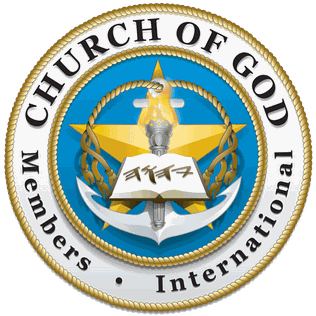
The Lamiales are an order in the asterid group of dicotyledonous flowering plants. It includes about 23,810 species, 1,059 genera, and is divided into about 24 families. Being one of the largest orders of flowering plants, Lamiales have representatives found all over the world. Well-known or economically important members of this order include lavender, lilac, olive, jasmine, the ash tree, teak, snapdragon, sesame, psyllium, garden sage, and a number of table herbs such as mint, basil, and rosemary. Lamiales and Orobanchaceae are both the largest populated parasitic angiosperms of flowering plants.

The Right Livelihood Award is an international award to "honour and support those offering practical and exemplary answers to the most urgent challenges facing us today." The prize was established in 1980 by German-Swedish philanthropist Jakob von Uexkull, and is presented annually in early December. An international jury, invited by the five regular Right Livelihood Award board members, decides the awards in such fields as environmental protection, human rights, sustainable development, health, education, and peace. The prize money is shared among the winners, usually numbering four, and is EUR 200,000. Very often one of the four laureates receives an honorary award, which means that the other three share the prize money.

Creole people are ethnic groups which originated during the colonial era from racial mixing mainly involving West Africans as well as some other people born in colonies, such as African, French, Spanish, and Native American peoples; this process is known as creolization. Creole peoples vary widely in ethnic background and mixture and many have since developed distinct ethnic identities. The development of creole languages is sometimes mistakenly attributed to the emergence of creole ethnic identities; however, the two developments occur independently.

Fidel Valdez Ramos, popularly known as FVR and Eddie, is a retired Filipino general and politician who served as the 12th president of the Philippines from 1992 to 1998. He is the only career military officer who reached the rank of five-star general/admiral de jure who rose from second lieutenant up to commander-in-chief of the armed forces. During his six years in office, Ramos was widely credited and admired by many for revitalizing and renewing international confidence in the Philippine economy. At age 93, he is currently the oldest living former Philippine president.

The Members Church of God International, abbreviated as MCGI, is an international Christian religious organization with headquarters in the Philippines. It started as a small group with less than a hundred believers. It is popularly known in the Philippines as Ang Dating Daan, the title of its flagship radio and television program and the longest-running religious program in the Philippines which was hosted by Eli Soriano, MCGI's "Overall Servant" until his death in 2021.

Ashtamudi Lake, in the Kollam District of the Indian state of Kerala, is the most visited backwater and lake in the state. It possesses a unique wetland ecosystem and a large palm-shaped water body, second only in size to the Vembanad estuary ecosystem of the state. Ashtamudi means 'eight braids' in the local Malayalam language. The name is indicative of the lake's topography with its multiple branches. The lake is also called the gateway to the backwaters of Kerala and is well known for its houseboat and backwater resorts. Ashtamudi Wetland was included in the list of wetlands of international importance, as defined by the Ramsar Convention for the conservation and sustainable utilization of wetlands.
Celestial Movies (天映频道) is an Asian 24-hour movie channel. The channel also screens films from and shows interviews with movie stars and directors, entertainment news and film award ceremonies. Available in 11 territories across Asia Pacific, including Mainland China, Hong Kong, Malaysia, Singapore, Indonesia, Thailand, Sri Lanka and other to HD in Malaysia, Jakarta.

Piat, officially the Municipality of Piat, is a 4th class municipality in the province of Cagayan, Philippines. According to the 2015 census, it has a population of 23,597 people.

Sitangkai, officially the Municipality of Sitangkai, is a 1st class municipality in the province of Tawi-Tawi, Philippines. According to the 2015 census, it has a population of 33,334 people.

Catholic Relief Services (CRS) is the international humanitarian agency of the Catholic community in the United States. Founded in 1943 by the United States Conference of Catholic Bishops, the agency provides assistance to 130 million people in more than 110 countries and territories in Africa, Asia, Latin America, the Middle East and Eastern Europe.

The earliest anatomically modern humans skeleton in Peninsular Malaysia, Perak Man, dates back 11,000 years and Perak Woman dating back 8,000 years, were both discovered in Lenggong. The site has an undisturbed stone tool production area, created using equipment such as anvils and hammer stones. The Tambun rock art is also situated in Perak. From East Malaysia, Sarawak's Niah Caves, there is evidence of the oldest human remains in Malaysia, dating back 40,000 years.
I Wor Kuen was a radical Marxist Asian American collective that originally formed in 1969 in New York City’s Chinatown. Borrowing from the ideologies of the Young Lords and the Black Panthers, IWK organized several community programs and produced a newsletter series promoting self-determination for Asian Americans. Initially consisting of students from Columbia University, the group worked in conjunction with residents of New York City’s Chinatown to address the community’s needs for healthcare reform, draft counseling, and childcare. The group expanded nationally with the Red Guard Party in San Francisco in 1972 to create a national organisation.

The ongoing communist rebellion in the Philippines is a conflict between the government of the Philippines and the New People's Army (NPA), which is the armed wing of the Marxist–Leninist–Maoist Communist Party of the Philippines (CPP). The conflict is also associated with the National Democratic Front of the Philippines (NDFP), which serves as the political wing of the CPP.
Emmanuel Agapito Flores Lacaba, popularly known as Eman Lacaba, was a Filipino writer, poet, essayist, playwright, short story writer, scriptwriter, songwriter and activist, often referred to as the "poet warrior" of the Philippines.
The Filipino value system or Filipino values refers to the set of values that a majority of the Filipino have historically held important in their lives. This Philippine values system includes their own unique assemblage of consistent ideologies, moral codes, ethical practices, etiquette and cultural and personal values that are promoted by their society. As with any society though, the values that an individual holds sacred can differ on the basis of religion, upbringing and other factors.
The Kirat Kulung are one of the indigenous communities of Nepal, as well as parts of northeastern Sikkim and Darjeeling district of India, having their own Kulung language, culture, history and tradition. The Kulung population in Nepal is estimated to be in the region of 150,000-200,000.

Our Lady of Piat is a 16th-century Roman Catholic icon of the Blessed Virgin Mary enshrined in Piat, in the province of Cagayan, Philippines. It is the town's patroness and is one of the most venerated Marian images of Mary in the Philippines, referred to as the "Mother of Cagayan".
International Institute of Rural Reconstruction, also known as IIRR is a non-profit organization that helps empower rural communities by making them self-sufficient. By offering programs across health, education, environment and livelihood, its goal is to have rural communities take charge of their own success. The organization has delivered programs to more than 40 countries in Asia, Africa and Latin America and directly impacted the lives of over 5 million people as of 2019.

Dr. Sankar Datta, is an Indian academic & professional development worker. He has been engaged in rural livelihood promotion / support activities for more than three decades since the early 1980s. Most of his field work has been in the undulating terrains of central India, from Chhota Udaipur in the west to Jharkhand in the east inhabited by various tribal groups.
National Rural Livelihood Mission (NRLM) is a poverty alleviation project implemented by Ministry of Rural Development, Government of India. This scheme is focused on promoting self-employment and organization of rural poor. The basic idea behind this programme is to organize the poor into SHG groups and make them capable for self-employment. In 1999 after restructuring Integrated Rural Development Programme(IRDP), Ministry of Rural Development (MoRD) launched Swarnajayanti Grameen Swarojgar Yojana (SGSY) to focus on promoting self-employment among rural poor. SGSY is now remodeled to form NRLM thereby plugging the shortfalls of SGSY programme. This scheme was launched in 2011 with a budget of $5.1 billion and is one of the flagship programmes of Ministry of Rural Development. This is one of the world's largest initiatives to improve the livelihood of poor. This programme is supported by the World Bank with a credit of $1 Billion. The scheme was succeeded by Deen Dayal Antyodaya Yojana on 25 September 2015.












